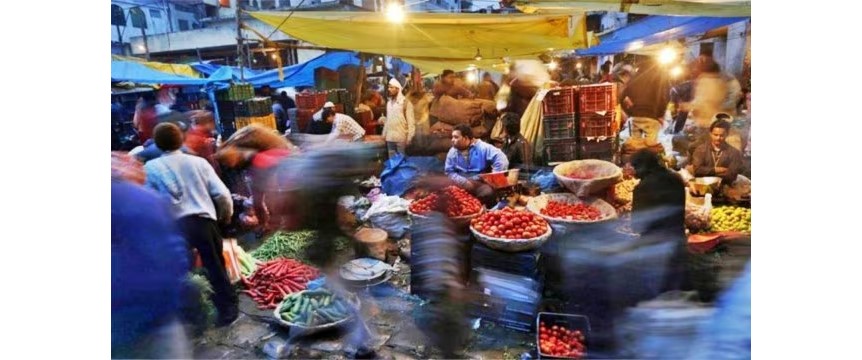Food inflation likely peaked in Nov, but decline may be gradual

Food inflation may have peaked in November when it came in at 8.7%, but the moderation in the coming months could be gradual, analysts feel.
Food inflation has remained above the 6% mark for five straight months to November, owing to volatility in key items within the Consumer Price Index (CPI) basket.
Retail inflation, based on the CPI, had risen to a three-month high of 5.55% in November from 4.87% in October, as a consequence of a 87% rise in prices of onions which led to a broad base increase in food inflation levels.
Food inflation during the month spiked was up 209 basis points from 6.61% in October. However, following the government imposing ban on onion export recently the retails prices have started to soften.
The sequential rise in the inflation rate recorded in November is the second-highest in the past 23 months. But, it is much lower than the 696 bps rise witnessed in July. And with the prices of onions seen moderating sharply this month – experts don’t foresee any possibility of a further spike in food inflation in the near-term.
“Overall food price inflation has peaked and would ease slowly going forward, while being volatile along the way, as we still do not rule out some amount of disruption of food production due to unfavourable weather conditions,” said Kunal Kundu, India economist at Societe Generale.
Within the CPI – cereals, pulses, spices, vegetables, and fruits, recorded double digit inflation in November.
The first three components, comprising 15% of the CPI basket, have persistently shown elevated levels of inflation and have ensured that food prices remain high for a far longer period. The inflation rates of these three components have remained in double-digits for the past several months defying the impact of high statistical base effects.
However, experts say the supply-side interventions like selling wheat in the open markets by the Food Corporation of India (FCI) to bulk buyers, selling of onion, pulses and flour at subsidised prices at the retail points would curb the rise in prices going forward.
Because of liberalised import regime, inflation in edible oils last month declined by 15% on year and prices of cooking oils have declined sharply since the beginning of year as global edible oil prices have soften.
In fact, in November, the sequential uptick recorded in prices of food items, particularly of cereals and vegetables, were “lower than market expectations”, signalling cooling off pressures, said Mukesh Kochar, national head – wealth at AUM Capital.
Onion prices, which rose sharply in the previous three months, have started to correct in December; potato prices declined by more than 15% last month while the rise in tomato prices has waned, Nomura said in a note.
“That said, given that the government has already announced minimum support price (MSP) increases of a bit more than 7% percent in wheat and rice at the national level, I don’t see food inflation coming down dramatically,” Ashok Gulati, agricultural economist and former chairman of Commission for Agricultural Costs and Prices, told FE.
“Only relief may come from veggies, especially onions in Jan-Feb of next year when the late kharif crop enters the market. This is under the assumption that El Nino does not create any major setback for rabi crops,” Gulati said.
Source Link :- https://www.financialexpress.com/policy/economy-food-inflation-likely-peaked-in-nov-but-decline-may-be-gradual-3341797/

















